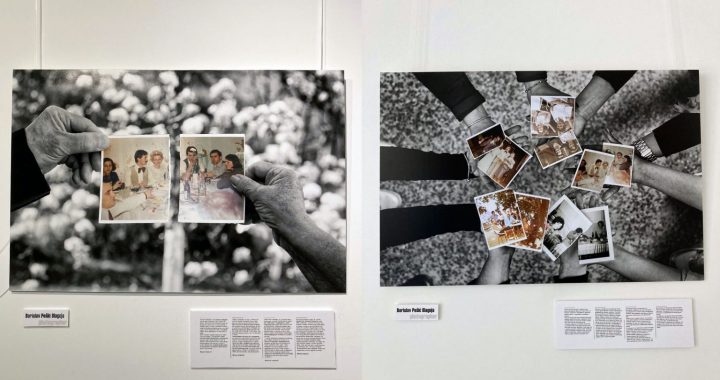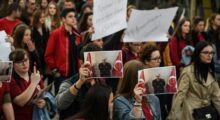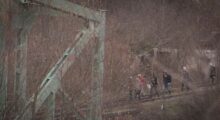Dismissing right-wing calls for the festival to be banned, one of the organisers says the message of inter-ethnic dialogue that it promotes is more needed today than ever.
The Mirëdita, Dobar Dan festival, which means “good day” in Albanian and Serbian and promotes reconciliation between Serbs and Kosovo Albanians, opened Wednesday in Belgrade with a photo exhibition, “All our tears”, which pays homage to victims of war in Yugoslavia, particularly ethnic Serbs, Albanians and Macedonians.
“The festival starts with this because war victims are a stumbling stone in our relations. In order to understand each other better, we need to know what happened. This exhibition intends to give space to the voice of victims because it is a zero point of every dialogue,” Sofija Todorovic, the programme director of the Youth Initiative for Human Rights, one of the organizers, said.
She emphasized that the exhibition was created in cooperation with associations of families of missing and killed people from Serbia and Kosovo, as well as families of killed civilians and internally displaced persons from North Macedonia.
“Now more than ever we consider it important to hear their voices to understand that peace is the only safe way forward,” NGO Integra, one of the organisers, wrote on a press report.
The main focus of the festival program in this edition will be the approach of societies of Kosovo and Serbia to the ongoing war in Ukraine as well as the collective memory and documentation of the experiences of political prisoners at Goli Otok, a Yugoslav-era political prison.
The stories represent several aspects of the wars in the former Yugoslavia – family photos of missing persons, crime scenes, mass graves, internally displaced persons and memorials, but also the long-lasting consequences of the conflict that are still felt today, showing the tragedy and complexity of the war.
Since it was founded in 2014, Serbian right-wing organizations have tried to disrupt the festival, which is organised by the Youth Initiative for Human Rights, the Civic Initiative from Belgrade and the Integra NGO from Pristina in Kosovo.
The nationalist NADA coalition, which won 5.4 votes in April’s Serbian parliamentary elections, on Tuesday called for a ban, accusing it of harming the interests of Serbia and of promoting the secession of Kosovo, Serbia’s former province.
“In this festival, the secession of Kosovo is promoted in a perfidious and insidious way, under the guise of cultural events in Belgrade, capital of Serbia, which undermines our constitutional and legal order,” the head of the Democratic Party of Serbia, DSS and the leader of NADA coalition, Milos Jovanovic, said.
Todorovic said their demand was wrong because bans cannot do anything good for dialogue and future better relations.
“It is devastating to see some political organizations looking for their own promotion with this festival. The ban culture has brought us to this situation in the first place. When there is no political will, these kinds of festivals are even more important,” Todorovic told BIRN.
“Here at the festival, we open often hard and painful issues, but contrary to others, we do open them,” she added, saying she would like to see more political actors supporting the festival.
The Youth Initiative programme director denied that the festival does not deal with Serbian war victims, saying that the opening exhibition this year is just the latest example of that.
“This exhibition unites the experiences of Serb and Albanian victims. The festival was never dealing just with non-Serb victims. The festival is not just dealing with war and conflicts, but also opens other important topics which are taboo in our societies,” Todorovic said.
The opening ceremony of festival takes place on May 26 in the courtyard of the Center for Cultural Decontamination, CZKD, after which guests will have the opportunity to see the play “Stiffler”, about a society that uses morality as a criterion for the display of humanity and the provision of aid.
The screening of the film Zgjoi, or Hive by Kosovar director Blerta Basholli will take place on May 28 at the Yugoslav Film Archive at Uzun Mirkova 1.
Hive won three major awards at the Sundance Film Festival and was shortlisted for an Oscar as Kosovo’s Best International Feature Film at the Academy of Motion Picture Arts and Sciences in 2021.
Another event that will be part of this year’s festival is a concert by the famous Kosovar singer Shpat Deda, on May 27, at the Jewish Cultural Center “Oneg Shabat”.
Entry to all events of the festival is free.
























